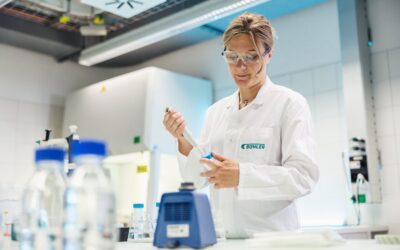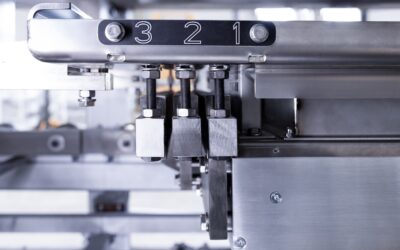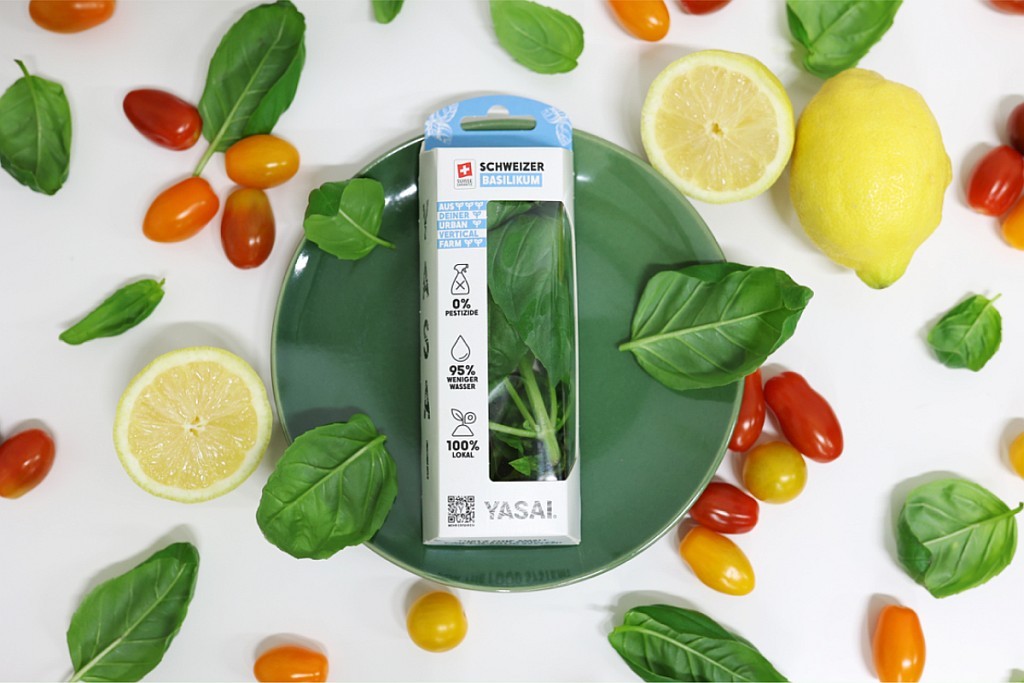Swiss tech leader Bühler Group has...
Planted Closes Series B Financing Round of CHF 70 Million
Planted Closes Series B Financing Round of CHF 70 Million

Swiss Foodtech startup Planted, known for its clean-label biostructured meat, successfully closed its series B financing round of CHF 70 million. The round was led by L Catterton, the largest global consumer-focused private equity firm. Planted will use the funds to launch its new whole-cut line of products including its chicken breast, further its international expansion, and increase production capacity.
Europe’s fastest growing alternative protein company
Founded in July 2019, Planted, the ETH Zurich spin-off produces delicious meat from alternative proteins such as peas, oats, and sunflowers. Planted focuses on creating the perfect bite with clean-label ingredients through its novel biostructuring approach, which combines protein structuring and fermentation. L Catterton is joined by existing investors such as Vorwerk Ventures, Gullspång re:food, Movendo, Be8 Ventures, ACE, ETH Zürich Foundation, Joyance, Yann Sommer, as well as new investor Tengelmann Ventures.
For Planted’s Co-Founder Christoph Jenny, the Series B investment reflects the traction the company sees in the market and with investors. “We are proud to be Europe’s fastest growing alternative protein company, with a strong track record, despite our nascency, in established markets like Switzerland, Germany, Austria, and France, and early traction in new markets like the UK and Italy. With the additional capital, we will further accelerate our international growth, expand our product range with a line of whole-cut products, and build an additional production site.”
Jenny added, “Current plant-based meat technologies and solutions are not able to replace more than 1-3% of meat consumption, and therefore are not having the required impact on our food system. Consumers argue that this is due to a lack of taste, an overall unattractive price, and questionable ingredients. For meat-eaters to make a switch, it is crucial that we create ‘better meat than animals’ – meaning better taste, price, lower environmental impact, good ingredients, and healthiness. It is these parameters that are always at our focus”.

Contributing to healthier, more sustainable food systems
A Managing Partner in the Growth Fund of L Catterton said “It is an honor to partner with Planted in its mission to revolutionize the way meat and protein-rich foods are consumed globally. Not only are their products inspired by nature, but they are also free of unnatural ingredients, scalable, and able to be easily incorporated into consumers’ daily lives. With food as a strong lever to promote human health and environmental stability, Planted directly contributes to creating a healthier and more sustainable food system. We have strong conviction in the company’s continued growth, as more people across the globe continue to adopt alternative proteins into their lives.”
Launching whole cuts
Powered by its unique biostructuring process that combines protein structuring and biotechnology, Planted is launching its whole-cut product range. This proprietary technology allows Planted to design and produce larger pieces of meat with complex structure, texture, juiciness, and tenderness. Planted is convinced that biostructured proteins will outperform animal meat in the future in terms of taste, sustainability, health, efficiency, and price.
“We are currently in the final phase of launching various whole-cut products such as our chicken tenders, chicken patties, and chicken breasts. These are the first larger cuts of meat on the market without additives. We are aiming to launch these products in foodservice first with retail distribution following shortly thereafter. As such, our chicken breast launch is being kicked off in collaboration with Michelin star chef Tim Raue and will be available to guests in his restaurant in Berlin as of 15th September 2022, followed by further launches in the foodservice sector,” says Christoph.
Additionally, more than 65 employees who work in Planted’s science, engineering and product development departments have been developing several other promising prototypes. “Now we need to test these prototypes with consumers, fine-tune them, and scale them. Strong backing by investors gives us the ability to fast-track testing and put substantial resources behind scaling the products to enable successful launches across our various sales channels within the coming months,” Christoph continues.

Further international expansion and increased production capacity
Planted is available at restaurants and retailers across Switzerland, Germany, Austria, France, Italy and recently, the UK, as well as over its own Europewide webshop. The company is preparing to enter several new European markets in 2023. Planted produces all its products under a glass-house production facility in Kemptthal, Switzerland – the first transparent meat production facility open to the public. As of May 2022, the company announced that production capacity doubled to over one ton of plant-based meat per hour.
In the near future, Planted is planning to open an additional production facility. “It makes us very proud to see how our products excite so many consumers all over Europe. Unique aspects such as our natural, healthy, and non-artificial ingredients, the incredible technology bringing animal meat like fibre-structure, and taste make all the difference. We are excited to further strengthen our international footprint with the current funding and extend our network of partners that share our passion for making a positive impact on this planet”, Christoph concludes.
Find out more on the Planted website.
Never miss a Swiss food innovation morsel.
Latest News
Bühler integrates NapaRoast technology to add pasteurization for safe food processing
Bühler launches OptiBake, the world’s first inductively heated wafer oven
Bühler Group’s new OptiBake oven...
House of Lab Science launches food and biotech hub in the Valley
House of Lab Science has launched its...
Impact Digest | Nutrition & Longevity: Striving for longer, healthier lives
As the global population ages, the...




![Article-header-images18[1]](https://swissfoodnutritionvalley.com/wp-content/uploads/2022/09/Article-header-images181.png)




